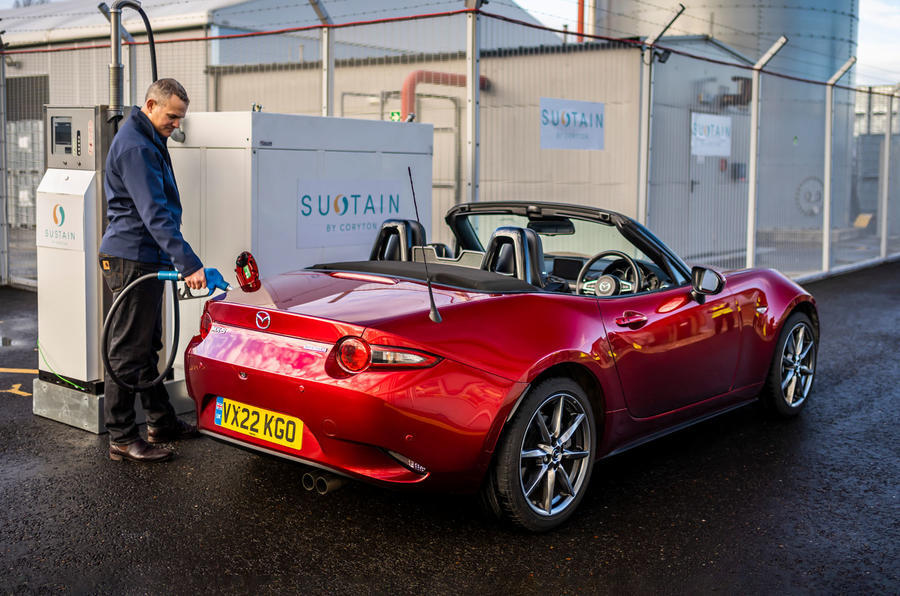Germany has reached a deal with the European Union to allow the continued sale of new ICE cars in the bloc from 2035 as long as they're running on e-fuels.
Sales of new ICE cars were set to be totally banned from 2035 through legislation enforcing a 100% reduction in CO2 emissions from all new vehicles sold. Only low-volume manufacturers (registering fewer than 1000 vehicles per year) were to be exempt.
The final vote on the law – previously expected to be a formality – was postponed after German and Italian diplomats raised objections to the legislated shift to electric cars, demanding an exemption for e-fuels.
E-fuels are made from CO2 captured from the atmosphere and hydrogen so are claimed to be carbon-neutral by their backers.
The support of German diplomats secured by the promised integration of e-fuels means the final vote on the legislation is now expected to pass.
German transport minister Volker Wissing said on Twitter: “Vehicles with combustion engines can also be newly registered after 2035 if they only use CO2-neutral fuels.”

This is despite further objections from Italy, which is reportedly seeking additional guarantees for the use of biofuels (made from biomass, such as wood waste). However, it doesn't alone form a large enough barrier to block the legislation.
The integration of e-fuels into the EU’s plan to reduce emissions from transport is likely to be welcomed by manufacturers such as Ferrari, Lamborghini and Porsche, famed for their combustion engines.
Porsche in particular has been a key driver behind the technology in recent years, having invested $75 million (£61.2m) in Chilean firm Highly Innovative Fuels (HIF).
HIF began operating the Haru Oni plant in Chile in December 2022, producing 130,000 litres of e-methanol for Porsche’s Mobil 1 Supercup race series.
However, Porsche currently has no plans to sell the fuel to motorists, reserving it for ‘lighthouse’ projects such as the Supercup, as well as its customer-facing experience centres.
In their current form, e-fuels are also prohibitively expensive for many: Porsche research and development executive Michael Steiner has previously estimated the fuel to cost $44.72 per US gallon (£37.24 per imperial gallon), projecting an eventual cost of $7.57 per US gallon (£6.30 per imperial gallon).







Join the debate
Add your comment
Great article, Mike. I appreciate your work, i’m now creating over $35000 dollars each month simply by doing a simple job online! i do know You currently e making a lot of greenbacks online from $28000 dollars, its simple online operating jobs
Just open the link———-> www.jobsrevenue.com
The comments about tidal power are ok; may I add that since the 60s, a large tidal dam has been running in France across the river Rance estuary, producing electricity as the water ebbs and flows. The technology will undoubtedly be much more efficient now and there are also neater ways of installing turbines without massive disruption to the environment.
Just like Norway generates ast amounts of hydro-electricity from its mountains, the UK is ideally placed to generate tidal power, as an island is surrounded by constantly moving water!
It seems that the political will is lacking, as is often the case...
About time there was some common sense injected into this debacle.
EV is NOT the sole answer, as many countries [a] cannot afford the cost of EV infrastructure & [b] currently [and will not be decommissioned quickly] the high % throughout the world of electricity generated by dirty coal = dirty EVs.
By 2035, via intense R & D eg. Formula 1 & multinational corps [eg. Sir James Radcliffe], alternate fuels, maybe hydrogen, may well be a viable alternate to the ICE motorist